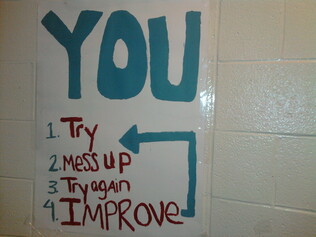 I was invited to speak to a group of Realtors on a topic that is dear to me - intentional listening. The more I thought about it the more surprised I became about how much there is to listening! Enjoy. Listen to Yourself Deep listening to another person is a profound practice. Listening deeply to someone can be enough to dissolve their anger, reveal new options or heal them from a traumatic experience. However to listen deeply to someone else means to be aware of your own self-talk, judgements, agenda, feelings, moods and needs. Listen to yourself and pay attention. Self-awareness is essential to hear the other clearly. This will help you self-manage as the conversation progresses. Listen With Your Ears, Eyes and Feelings Non-verbal sounds: Deep listening requires you to listen to not just the words being spoken but also to the tone, rhythm, pitch and volume of their voice. Sighing, holding the breath and pauses are all indicators which can provide you with clues, or questions, to find out what the person really means or wants to express. Listen with your eyes: Body language speaks volumes! Use your eyes to listen as you observe how the person gestures, clutches, taps, folds arms, makes their body bigger or smaller. Watch the eye movements, head tilt and facial expressions as you take in more. How do you feel? Sometimes you will pick up unexpected feelings when someone is speaking. Pay attention to how you feel as the other is speaking. You may feel sad, angry, upset, joyful or afraid. Endeavor to understand where these feelings are coming from, because they will affect what you hear and how you interpret it. Are you picking up the feelings from the other or are these feelings being triggered by your own experience? For example your client’s voice may be monotone and quiet which could irritate you. Just take note. S.L.O.T.A.S.A. - Seven Listening Actions To Build Relationships A relationship is built upon safety, respect and trust. When someone feels listened to they experience respect, trust and relaxation. Your job as a listener is to not only listen but to convey the perception to the speaker that you are listening. A speaker who thinks you are listening naturally feels affinity with you.
Lawrence is available to coach you in all aspects of your life.
0 Comments
 One of my clients recently wrote to me about a small but significant shift in his teaching praxis. He, like many teachers, is finding teaching a challenging climate with little satisfaction. He wrote: “One day last week in school, the day was dragging and I was noticing the same old negative behavior and really felt like I didn't want to be here. I knew I had to try and change that somehow, but I couldn't do EFT (a powerful anxiety releasing exercise I teach clients and students). I tried to notice the positive things that were happening in class and respond to them. It worked, at least for the moment, and I felt better and noticed the students seemed more engaged. However, doing this felt very unnatural to me. I personally love positive reinforcement and am hurt by criticism. Paradoxically it feels foreign at school to be positive and praise my students. What are your insights on this?” Insight 1: It’s impersonal. Nationally many teachers are dissatisfied with their work. This is evidenced by the fifty percent attrition rate of new teachers within the first five years of teaching. Additionally it is reflected in the confusion and tension around common core reform, educator evaluation and zero-tolerance policies throughout the country. In other words the environment in which hundreds of thousands of teachers and students attend daily is fraught with conflicting attitudes and negativity. Insight 2: Noticing positivity changes the way you feel. There is growing research to indicate that putting more attention on the positive parts of a negative experience changes your feelings from victimization, fear and anger to happiness and empowerment. Why is this important in the classroom? When you have twenty to thirty students there is a broad array of behaviors that please and displease you as a teacher. One common habit for a teacher is to attend to the negative issues first. On average teenagers hear a negative (don’t, should, not now, stop that, no etc) a staggering 450 times a day! This generates a climate of negativity that reinforces over and over again that there is something wrong which needs fixing. It feels bad and over and is fuel for teacher burn-out. For children it is a mind-numbing process that engenders a feeling of wasted time in the learning process. It demoralizes everyone. Focusing on negative behaviors in the classroom becomes a challenging habit to break and unfortunately often leads teachers to miss many opportunities with their students. Insight 3: Praise to admonishment ratios is a science worth investigating. A wonderful book, ‘How Full is Your Bucket? ‘ tracks research to show that a ratio of four praises to one admonishment (PA ratio) changes behaviors. This is a powerful tool to change classroom behavior and starts to work immediately (as my client noticed). If you track your PA ratio for one lesson you may be shocked at what you find. Many teachers (and parents) falsely believe their PA ratio to be close to four to one but when they experiment find the reverse is true. To change your PA ratio requires practice and honesty. Try it , even if it feels unnatural (which it will at first) and you will notice a difference. Insight 4: Criticism hurts more than we acknowledge. In a world where heroes suck it up and move on I notice there is often a denial by many just how much criticism damages their relationships and diminishes their performance. Criticism is often non-specific and subjective. Contemplate and analyze what behaviors affect your moods and efficacy as a teacher and explore ways to communicate your needs in a non-critical fashion. This shift from criticism to feedback (I like to think of it as feed-forward) changes everything. If you enjoyed this blog share it with someone who is making a difference in the lives of children.  I recently asked several people if they believe in soul mates. I was surprised to find that the majority were convinced that soul mates are real. Of course, without a precise definition, it is difficult to know what people consider to be a "soul mate." One definition I found in Wikipedia is that, "a soul mate is a person with whom one has a feeling of deep and natural affinity, love, intimacy, sexuality, spirituality, and/or compatibility." Unfortunately, this definition may qualify quite a few people throughout our life as soul mates. The notion I carry, and I assume many of you do as well, is that a soul mate is a unique person who is mysteriously designated for you, fulfilling your life and making it complete. With this definition in mind, I ask you to consider my quest to find the answer to this intriguing question. In the (Australian) winter of 1987, I met someone whom I believed to be my perfect mate. She later became my wife. I had no concept of "soul mate" at that time, but when I saw her everything inside of me said "YES!" We had a brief courtship before I proposed to her. Even though she accepted, I sensed that she was not feeling the same devotion for me as I had for her. This intuition proved to be true. Four months later, on a trip to the vast region of Western Australia, she left me for another man. I was devastated, hurt and disoriented. For several days I could not trust myself to safely cross the street because of the depth of depression I found myself in. After she left, I was alone in my Nissan van, sleeping and camping wherever I pulled up for the night. I travelled along the remote north west Australian coastline. It is one of the most isolated coastal areas in the world. I was as alone as I could possibly be. One evening I built a camp in the sand dunes on a beautiful beach. That night I cooked my favorite camp fire meal - Japanese pizza. It was a simple recipe made by lightly frying shredded cabbage and carrot, mixed with egg, flour and garlic. After the delicious meal, I grabbed my book Illusions – The Adventures of the Reluctant Messiah by Richard Bach (as the name suggests it is about seeing through the illusions of many things we consider real). I loved this book and couldn't put it down. I was restless and could not sleep that night. My mind was busy with endless thoughts. I gazed at the brilliant starry night sky and all of the chatter in my mind slowly fell away revealing a deep insight. I realized that the woman I thought was my soul mate was not the cause of my depression. The unbearable emotional pain came from my desire that she be different from whom she was.This was a devastating and yet liberating realization. The lofty and romantic ideal of finding my soul mate and living happily ever after, I realized, was coming from a controlling and selfish place in me. That night a huge weight lifted from my soul. But I still wondered if there was indeed a soul mate whom I was destined to meet? During the next fourteen years I had one serious relationship followed by a decade where I did not have any relationships at all. For much of the time, I was confused and disillusioned. I wanted to figure out the mystery of relationship. Were soul mates fact or fiction? During this time of abstinence, I reflected upon my experience and met others–friends, teachers, mentors–who helped shed light on this subtle question. I became aware of how many people, like myself, expend enormous energy in hoping the perfect mate will one day appear and take care of all of their needs. By the time I reached my late forties, I had found answers to many of the questions that had plagued me since that fateful day twenty years earlier when my first wife left me. I was ready to be with a woman again, but in a different way. I did not need her to fulfill my needs and wants. Self-reliance was the greatest gift I could give and receive in a relationship. I knew that my "soul mate" would be someone who was free to be herself and live her destiny and give me the freedom to do the same. Finally, eleven years ago I met my current wife Jessica. I consider her my "life mate". We are partners whose bond is wrought from shared values. Remembering to respect each other's talents, beauty and gifts is the commitment that keeps the bond between us vital. Years of pondering this question had revealed the futility of believing that there was a uniquely designated other who would make me whole. Instead, I began to realize that a "mate for the soul" can only be found once we know who we are and are complete in ourselves. Then we are ready to commit, to be open and honest, allowing each other's fullest potentials to flower. I don't think I need to tell you this, but my "investment" in your Life Coaching as a gift for my wife has been close to the best thing I have ever done with or for her, and ultimately for our relationship.Thank you so much. (C. Binder – Oregon) |
Archives
September 2016
Testimonial: |
LAWRENCE CARROLL EDUCATIONAL CONSULTANT & LIFE COACH
|
About Lawrence Carroll
Bio Writings Testimonials Contact Location: Berkshire County MA Call (413) 212 2030 |
"Lawrence Carroll's workshop on personal stress management, which he conducted with my Columbia Grad School class
was a huge success." Neal Pilson, Columbia University, Former President, CBS Sports |

 RSS Feed
RSS Feed